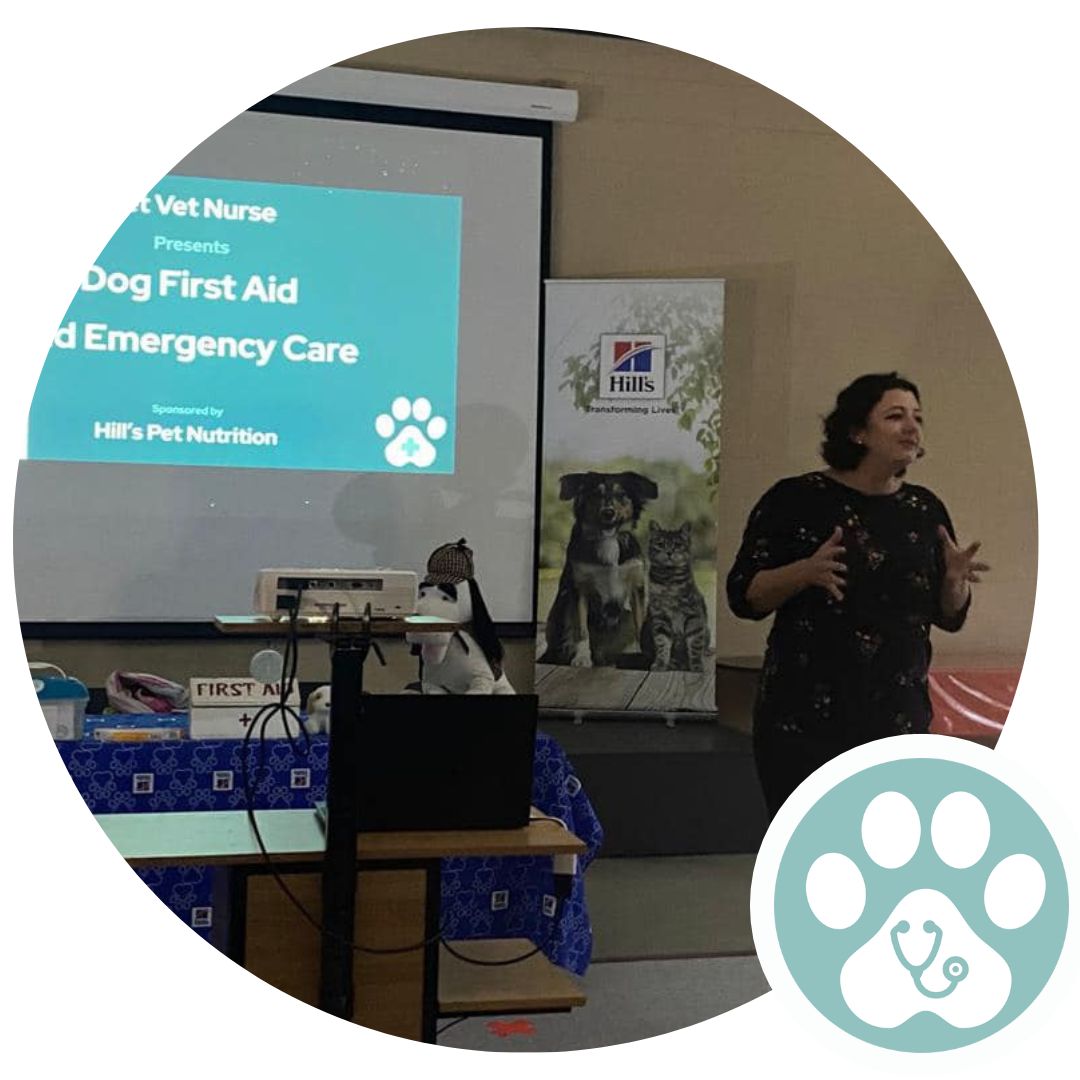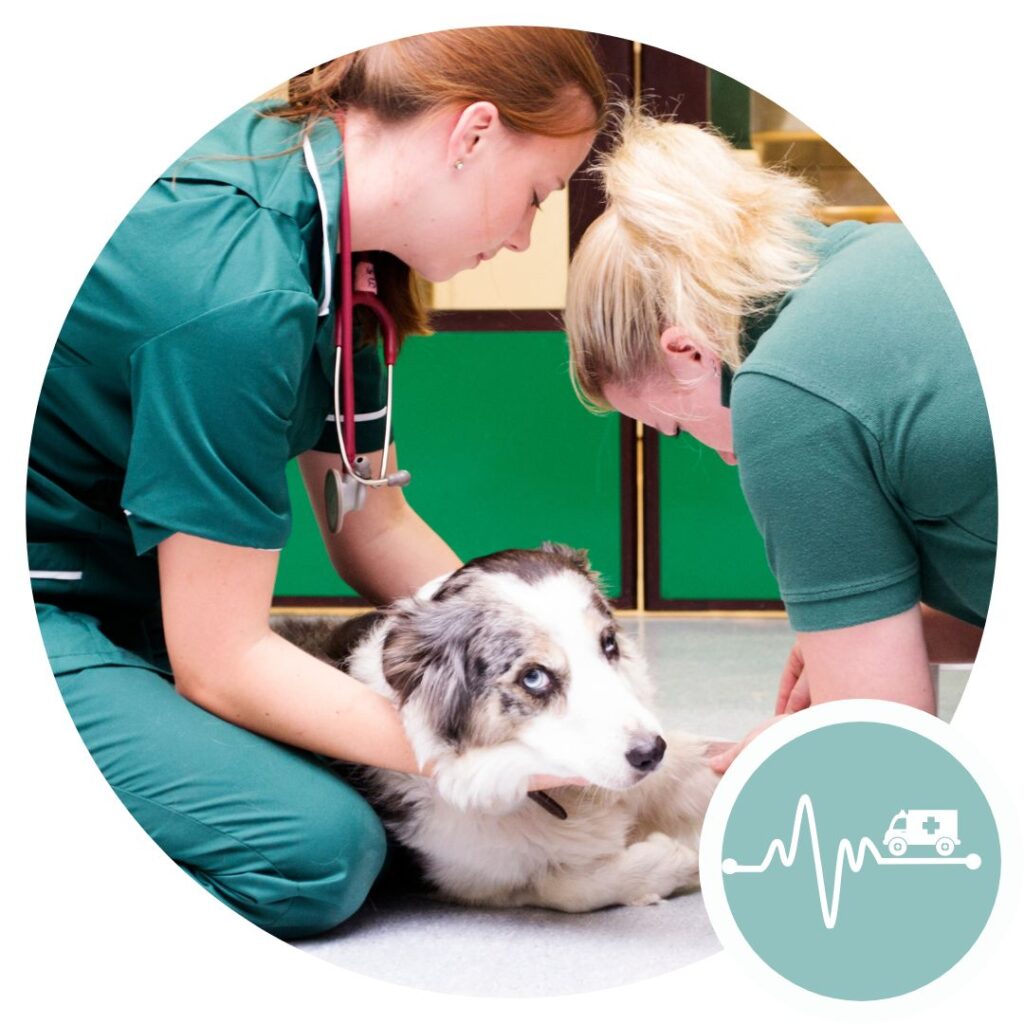Empowering Pet Owners with Essential Knowledge
Gain valuable, hands-on knowledge to effectively care for your pet’s overall health and well-being. Develop practical skills to ensure your furry companion stays happy, healthy, and thriving every day. Through expert guidance, you’ll learn essential techniques for maintaining your pet’s nutrition, hygiene, and overall wellness. Build confidence in providing the best possible care for your beloved companion.

Pet Vet Nurse
Handle any emergency situation with your pet – and get them to your vet!


WHAT DO WE OFFER?
Pet Parent Educational Courses
We offer a range of educational courses for pet owners, designed to equip pet parents with the knowledge and skills needed to handle various situations and health conditions their pets may face. Our courses cover everything from pet first aid to caring for pets in their golden years.
When you take a course with us, you’ll be supported by fellow pet parents who share similar experiences. You’ll feel prepared, have essential tools like a pet first aid kit, and bring your questions so we can help you find the answers together.
Pet Vet Nurse offers educational courses only, and does not consult privately. Contact your local vet practice with any pet specific issues or emergencies.
What is the problem?
Emergency Situations
Dealing with emergency situations involving your pets can be scary, you can seem helpless and freeze in a moment when time is of the essence. The best thing you can do is to be prepared. Our Pet First Aid course equips you to handle any emergency situation and get your pet to the vet on time.
What are some of the situations that you would have to deal with?
-
Poisonings
Identify what your pet has eaten. Dangerous foods include: xylitol, coffee, garlic, onions, chocolate and many more. Phone Poison control: 021 689 5527 or your vet.
-
Snake Bite
Identifying the kind of snake could help with treatment and prognosis, but don't do it if it will put you in danger or make treatment take longer.

-
Heatstroke
Some pets are at a higher risk of heatstroke than others, for example: Bulldogs, Pugs and Pekingese but ANY dog can get it. Get to the vet ASAP - and have the aircon on!
-
Bleeding
Often bleeding can look worse than it really is. Any wound that spurts blood or does not stop bleeding in 5 minutes should be attended to by a veterinarian.
Pet Care Courses for a Healthier Life
Explore our expert-led pet care courses designed to help you understand and support your furry friend’s well-being. From first aid to senior pet care and skin health management, gain the knowledge you need to keep your pet happy, healthy, and thriving at every stage of life. Enroll today for expert guidance!
See if we have a course that suits your needs
Questions
Frequently Asked Questions
Speak to your local veterinary practice as we often partner with vets all across South Africa to bring pet educational events to you.
Contact your local veterinarian and take your dog or cat in for a consultation. I am a veterinary nurse – but I cannot look at photos and advise in any way. I will only tell you to go to your vet as they will be able to help you. Pet Vet Nurse only offers educational courses.
Know what to pack in your first aid kit
- Basic techniques to restrain your pet, CPR and artificial respiration without hurting them
How to handle most emergency situations and what to do before you get to the vet
Some of the topics that I will cover: Bleeding, choking, fractures, snake bites, heatstroke, vomiting and diarrhoea
An emergency is a condition that needs to be stabilised and treated right away by a trained veterinary professional to make sure of the best outcome. These include snake bites, broken bones, eye injuries, heat stroke, collapse and a few more.
These may seem like an emergency, but it’s not – call your veterinarian! These include bee stings, having bloody diarrhoea or vomiting blood, not drinking for more than 24 hours, having a small cut or wound, chewing out stitches and having a foreign object in the stomach.
There is no need to panic – call your vet and make a standard appointment. These situations include itching, vomiting and diarrhoea, not eating, limping, worms in stool, smelly ears and having ticks or fleas.
Can't find your Question?
Please note that I am a veterinary nurse and not a veterinary practice. Please contact your local veterinarian if you have pet-specific questions. But if you want to buy a pet first aid kit or attend a course, please contact us.
Testimonials








